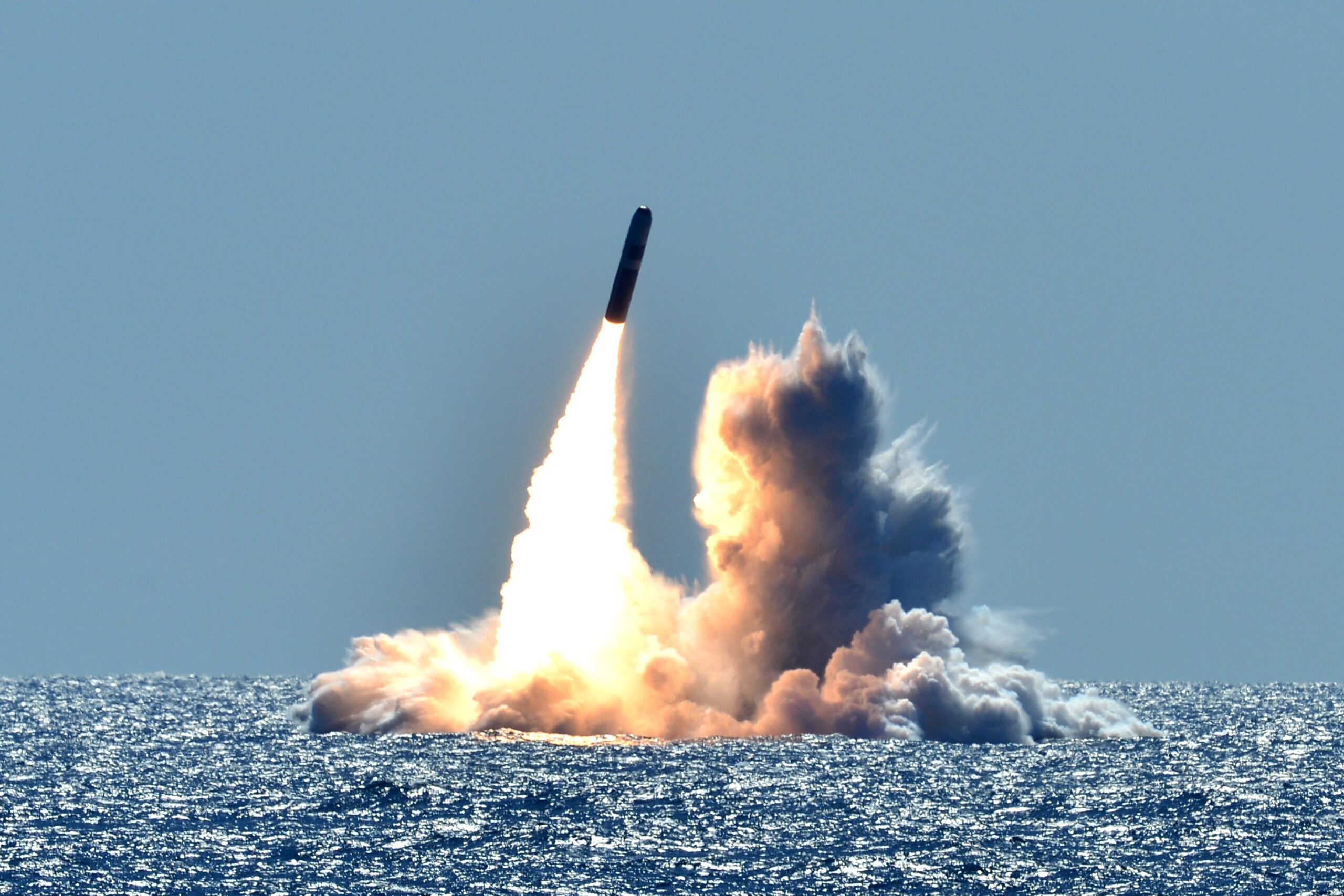Northrop Grumman Corporation has successfully manufactured two thousand solid rocket motors for the U.S. Navy’s Trident II D5 Submarine Launched Ballistic Missile (SLBM) system with the completion of first-stage A1000 and second-stage B1000 motors. The system is provided to the U.S. Navy by prime contractor Lockheed Martin, which develops and produces the missile and support equipment. It has completed 190 successful flight tests since deployment with no motor failures. The Trident II D5 missile will continue to serve as the seaborne leg of the U.S. Nuclear Triad for decades to come. Northrop Grumman has manufactured:
- More than 800 first-stage tactical motors
- More than 800 second-stage tactical motors
- More than 370 third-stage tactical motors since assuming the scope of work in 1996
- And successfully cast over 86 million pounds of propellant for D5 motors
Wendy Williams, vice president, propulsion systems, Northrop Grumman said: “Our customers rely on our solid rocket motors to conduct their most important missions. The unmatched reliability, record-breaking mission success and planned life expectancy of the Navy’s SLBM system speaks to the design of the propulsion and our ability to consistently produce critical motors.”
“The unmatched reliability and performance of our sea-based nuclear deterrent is made possible by a dedicated team of military, civilian and industry partners who bring expertise and dedication to a truly extraordinary mission. The propulsion systems and their performance are critical to the success of that mission,” said Vice Admiral Wolfe.

The Trident II D5 SLBM is a three-stage, solid-fuel, inertially guided missile with a range of 4,000 nautical miles. The missile is launched by the pressure of expanding gas within the launch tube. When the missile broaches the waterline, it enters the boost phase, expending its first, second and third-stage rocket motors. Northrop Grumman manufactures solid-propulsion boost motor systems for all three stages of the Trident II missile under a contract from prime contractor Lockheed Martin. For nearly 70 years, Northrop Grumman has partnered with Lockheed Martin and the Navy to provide solid rocket motors for the SLBM system. Completion of motors A1000 and B1000 represents the longevity of the Trident II D5 program, the nation’s commitment to deterrence and the role of the company’s solid rocket propulsion as an essential national security asset.
As part of the celebration of this milestone, U.S. Navy Vice Admiral Johnny Wolfe, Director for Strategic Systems Programs, visited Northrop Grumman’s Bacchus, Utah, campus where the Trident II D5 motors are cast and assembled. Northrop Grumman and its legacy companies have supported the Navy’s deterrence mission for over six decades, supplying propulsion for the nation’s Fleet Ballistic Missile submarine-launched systems starting with Polaris, Poseidon C3, Trident I C4 and then Trident II D5, which is less than halfway through its expected service life. Northrop Grumman is a leading global aerospace and defense technology company. Our pioneering solutions equip our customers with the capabilities they need to connect and protect the world, and push the boundaries of human exploration across the universe. Driven by a shared purpose to solve our customers’ toughest problems, our 95,000 employees define possible every day.















